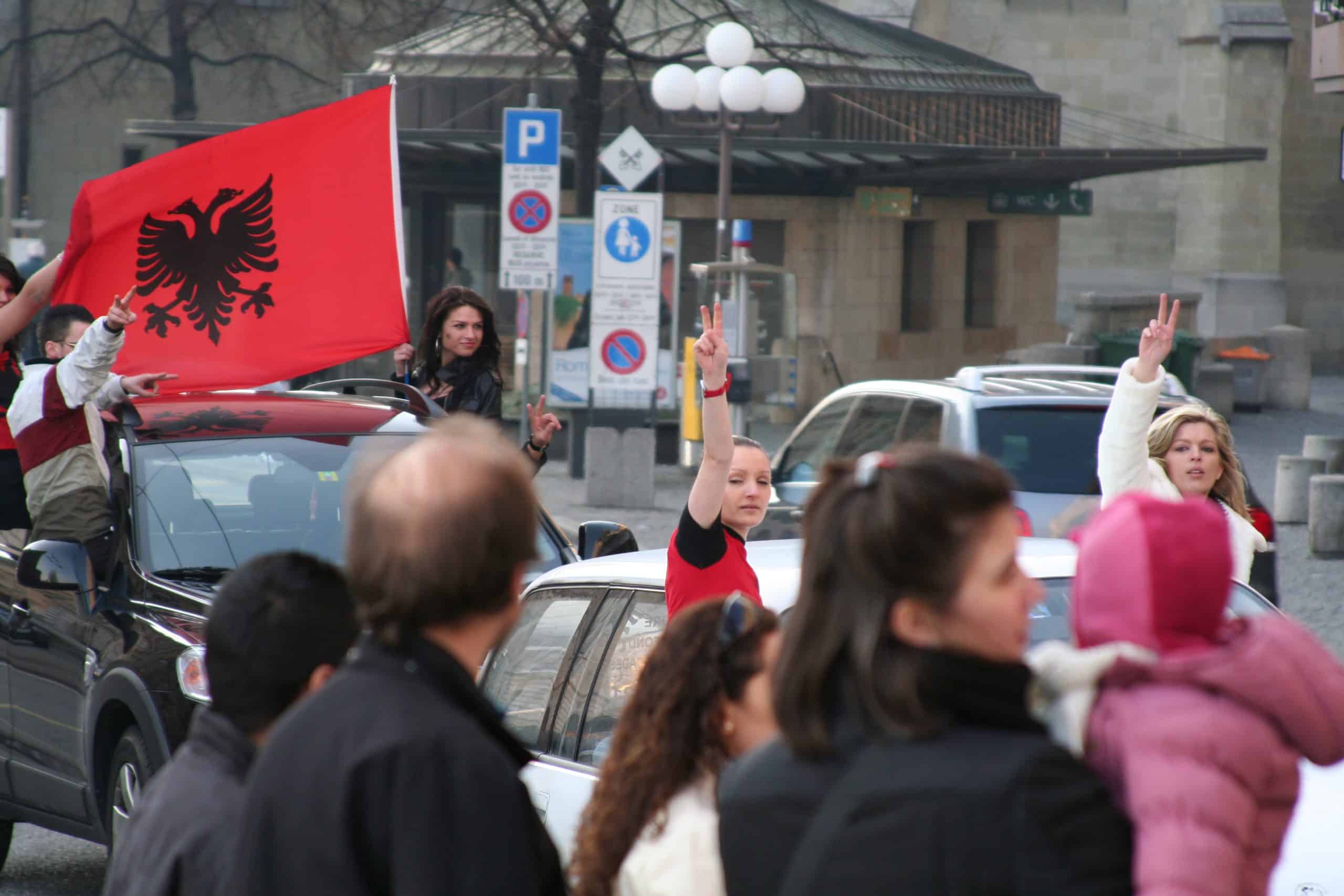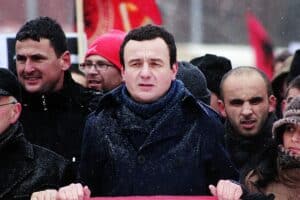It has been ten years since Hashim Thaçi, Kosovo’s Prime Minister at that time, declared the country’s independence on 17th February 2008. In the last years, many hopes have been abandoned and even more goals have been set.
The country had been under supervision of the United Nations since the NATO intervened in a violent conflict between Albanian rebels and Serbian forces. Over the years of the new state, there have been disturbances in legislature and executive. In 2015 tear gas was set free in parliament because of an agreement on the Association of Serbian municipalities and an agreement on border demarcation. The next incident happened in 2016 when activists threw explosive devices at the parliament. Last month, in January 2018, moderate politician Oliver Ivanović was shot in the ethnically divided city Mitrovica. Kosovars have been showing their discontent with the country’s development through several protests and demonstrations.
Accomplishments France was the first EU member state to recognise Kosovo as an independent state. About 115 other countries have followed, but there are still over a hundred missing. Especially Spain, China, and Russia refuse to accept it because of the effect it could have on their own domestic politics. Next to Spain, four other EU member states do not recognise Kosovo: Slovakia, Greece, Cyprus and Romania. Kosovo has joined approximately 200 international organizations like FIFA and IMF and has participated in international contests as for example Eurovision and the Olympics. By the end of August 2018 , Kosovo´s own international dialling code should start working. Furthermore it can show an economic growth of nearly 4% and efforts in improving water and electricity supply for its citizens. It tries to enlarge its infrastructure by building new and better roads. Authorities and executive work has been professionalised to fight corruption. New government institutions have been introduced, joined by the highly debated establishment of the ´Kosovo Specialist Chambers & Specialist Prosecutor’s Office´, a court located in The Hague, which concerns itself with trials of crimes committed between 1998 and 2000. Despite being a relatively new country, it is burdened by its violent past. Mass graves have been found in the region continuously, which led to the building of several memorials.
Problems Kosovars have been showing their dissatisfaction with politicians from wartime still being active in politics. Also, the new court in The Hague seems to become more unpopular due to its charges against Kosovo Albanians only. Before the establishment there was high pressure from EU and the US, so that Kosovo set up its court in the Netherlands but still under Kosovo Law. It remains especially controversial in Albania because of its accusations against former members of the Kosovo Liberation Army (KLA) only. The ruling political elite mainly consists of said KLA members.The economic and political development has been disappointing residents and has not met their expectations. The country has the most youthful population in Europe, but also one of the highest youth unemployment rates. Students and young workers who consider to study or work abroad are met with troubles getting visa to even travel in Europe. The most prominent example of Kosovo´s visa policy is Prime Minister Ramush Haradinaj himself, who has been declined visa for travels to the US and Great-Britain. As a result, many young people leave the country and migrate to other places in hopes of higher chances for a job . Surprisingly about 200 000 people are said to have left, although it is difficult to apply for visa. Reasons to leave are little prospect for young people , high corruption, lack of trust in institutes, politics in general, high unemployment and much more. Economically, Kosovo heavily depends on Kosovans living overseas and sending remittances to their home country.
One of Kosovo´s biggest and most apparent problems is its ethnic division. Especially in cities like Mitrovica, Kosovan Serbs and Kosovan Albanians live completely separated from each other. In 2016, Serbian authorities tried to build a wall between the differently dominated neighbourhoods, but the Kosovan government banned any further actions. Recently, the idea of exchanging territories between the Kosovo Serbian and the Kosovo Albanian population have circulated in media and politics. However, the effects of such a movement and realignment of borders on human rights of the affected citizens are not predictable. Other minorities like Bosnian Croats and Serbs, Macedonian Albanians and Albanian Greeks might also follow suit.
As in most countries of the region, Kosovo struggles with corruption. The hopes on more transparent governance have been getting smaller. Organised criminality belongs to everyday life. Next to that are other, not so apparent problems. Pollution has been getting worse with many households still heating with coal because of their financial situation. Furthermore, many places are still full of mines from the war. Demining only works with international support and is taking its time.
Goals Despite all of its problems, the Kosovan government has set itself ambitious goals for the following years. To gain international recognition of its independence is a top priority. With solving that, the chance of becoming a candidate for the EU grows. One obstacle is the relation with Serbia. The EU has connected the solving of their dispute to the accession of both countries to the Union. By doing this, there is hope that Serbia will cooperate more in the future. Additionally, it wants to fight the youth unemployment rate, as the Kosovan youth is well-educated and ready for the job market. One final wish is to come to terms with its own past, because it is a small path between not forgetting their past and being stuck in it.
The past ten years have been full of disturbances for the new country, but its wish to become a fully recognised state without ethnical, economic and political problems still remains intact.
Sources: Washington Post Balkan Insight BBC ZDF The Guardian FAZ The Economist New York Times Der Standard



